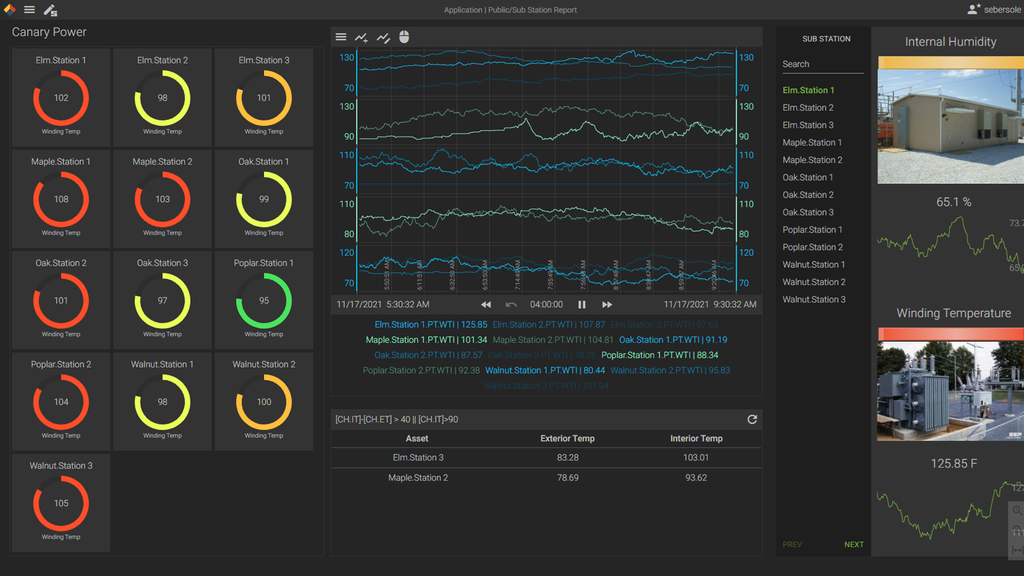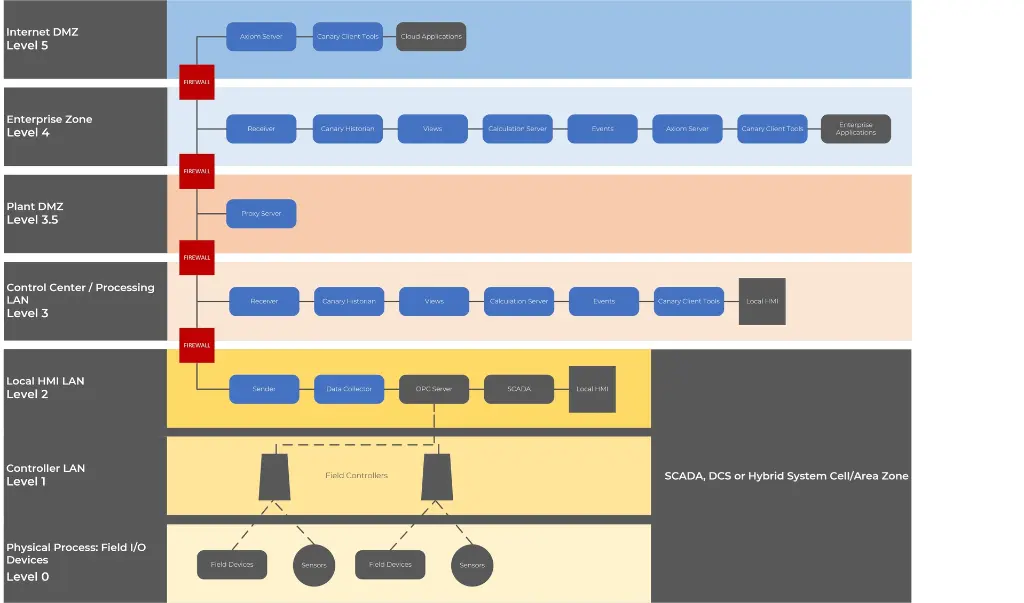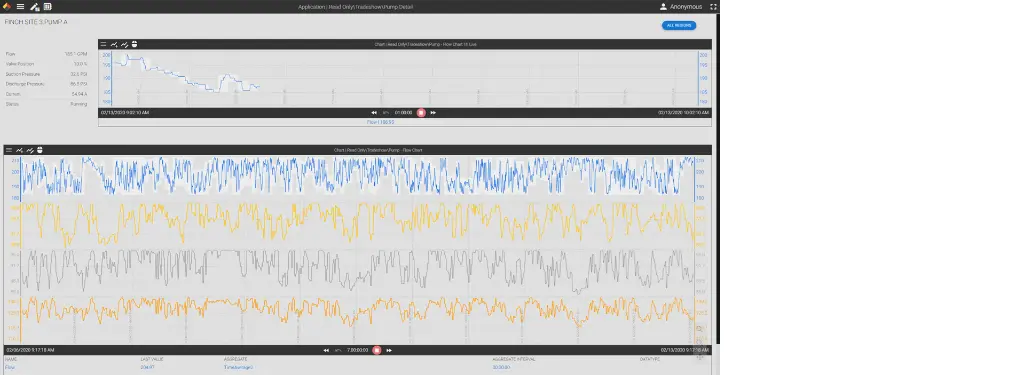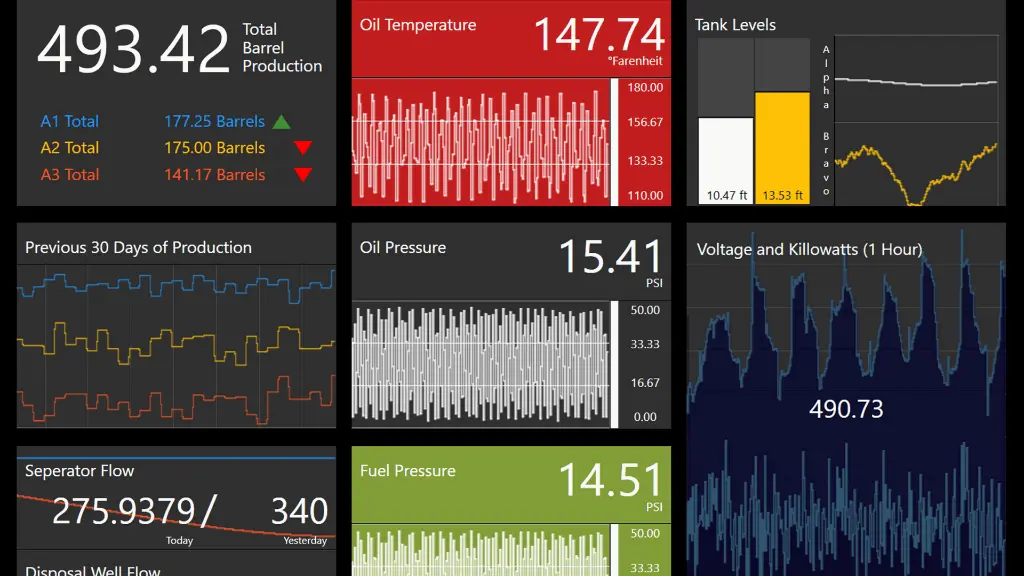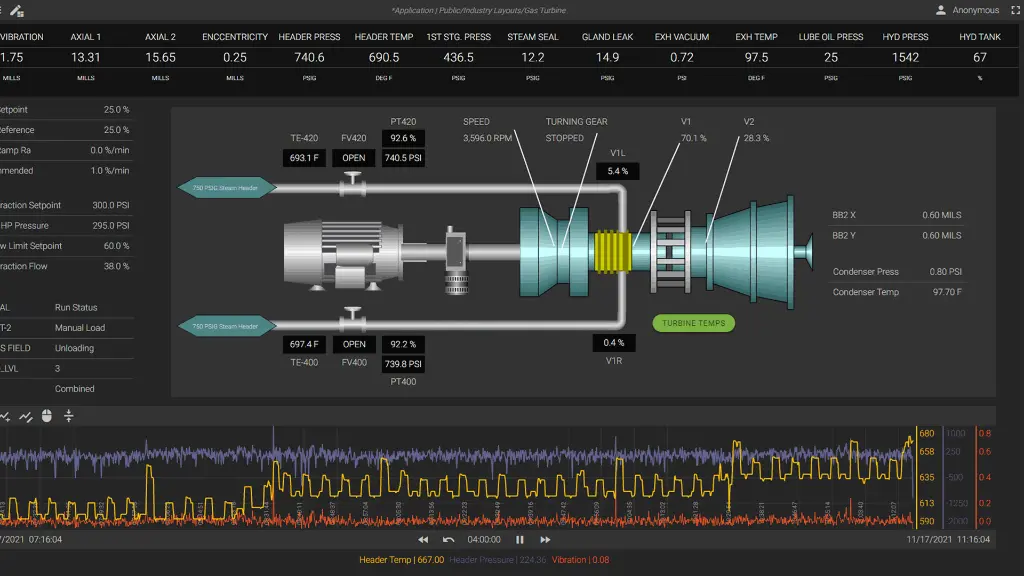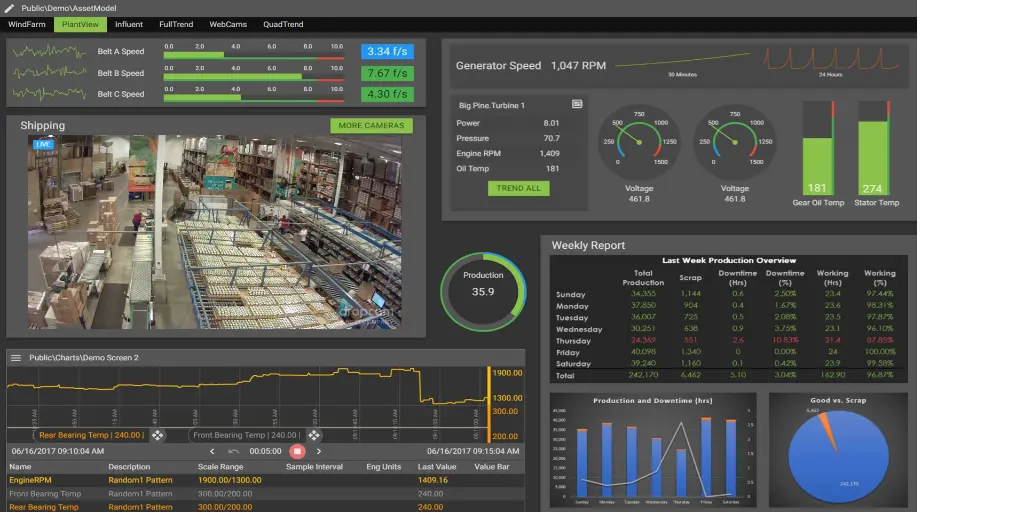Most companies struggle to maximize the value of their process data. Companies need to store and analyze process data so they can operate more effectively, but they continually encounter the same three problems.
• They produce too much data to manage
• The necessary software is expensive
• Analytic tools are overly complicated
These three roadblocks keep companies from moving forward and leave both engineers and executives frustrated. Canary helps companies defeat these problems. Canary is designed to handle large volumes of data from industrial processes, the historian is known for its efficiency, scalability, and flexibility. Here are some key features and functions of the Canary Historian:
1. Data Collection: The historian collects data from various sources, including SCADA systems, PLCs, IoT devices, and other industrial automation equipment. It supports multiple data collection protocols like OPC UA, MQTT, and more.
2. Data Storage: The Canary Historian provides efficient and compressed data storage, ensuring high performance and fast retrieval times. It can handle millions of data points per second, making it suitable for large-scale industrial applications.
3. Scalability: The historian is designed to scale easily, allowing it to be deployed across different environments, from small local installations to large enterprise systems and cloud-based solutions.
4. Data Visualization and Analysis: Users can visualize and analyze historical data through various tools and interfaces. The historian integrates with Canary Labs' Axiom software for creating dashboards and performing advanced analytics.
5. Integration Capabilities: The historian can be integrated with other software and systems, facilitating seamless data exchange and interoperability. It supports RESTful APIs, making it easy to develop custom applications and integrations.
6. Security: Canary Labs emphasizes security, user authentication, and access controls to protect sensitive industrial data.
7. Reliability and Redundancy: The historian offers features like store-and-forward technology and data redundancy to ensure data integrity and availability, even in the event of network disruptions or hardware failures.
The Canary Historian is widely used in industries such as manufacturing, energy, utilities, and more, where real-time data monitoring and historical data analysis are critical for optimizing operations and making informed decisions.
For more detailed information, you can visit the official Canary Labs website.
Pricing
Hardware Min Specification
Collector and Sender Machine
- Dual Core 2.0 GHz Processor
- 8 GB of RAM - Windows 10 64 bit or greater
- .NET 4.7.1 or greater
- 500 GB HDD @7200 RPM
Site Historian Server
- Quad Core 2.4 GHz Processor
- 16 GB of RAM
- Windows 10 64 bit or greater
- .NET 4.7.1 or greater
- 2 TB HDD @7200 RPM
Corporate Historian Server
- Six Core 2.4 GHz Processor
- 32 GB of RAM
- Windows 10 64 bit or greater
- .NET 4.7.1 or greater
